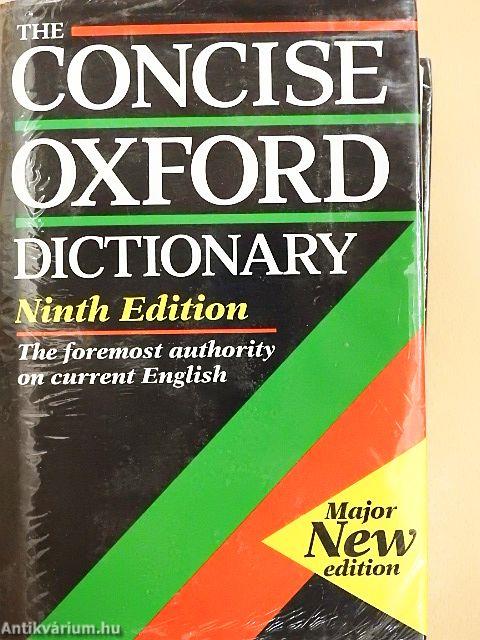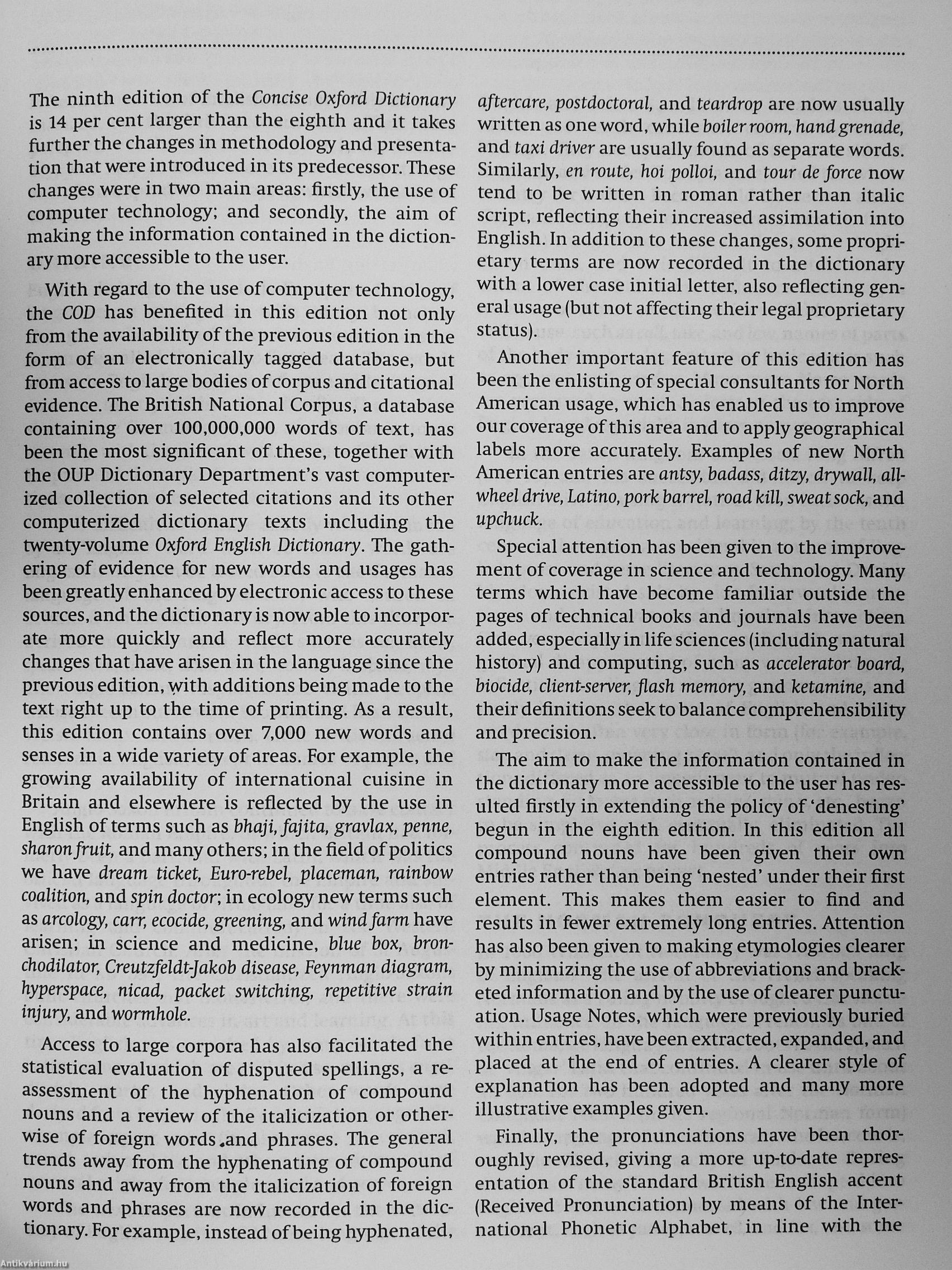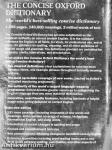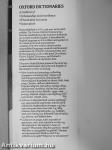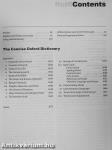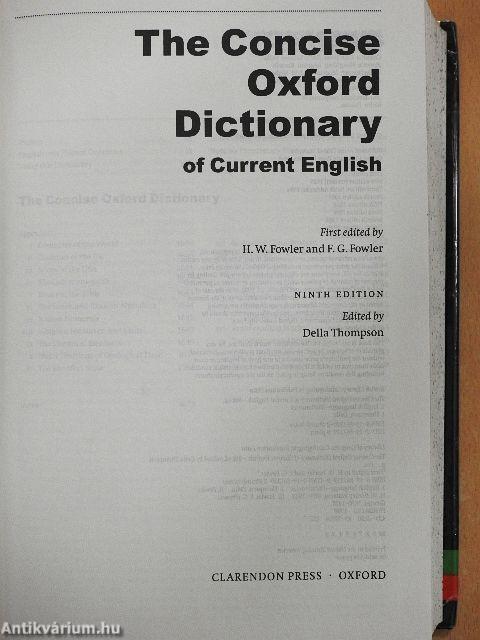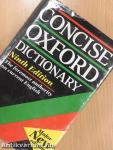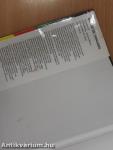1.103.866
kiadvánnyal nyújtjuk Magyarország legnagyobb antikvár könyv-kínálatát

VISSZA
A TETEJÉRE
JAVASLATOKÉszre-
vételek
The Concise Oxford Dictionary of Current English
The foremost authority on current English
| Kiadó: | Clarendon Press |
|---|---|
| Kiadás helye: | Oxford |
| Kiadás éve: | |
| Kötés típusa: | Fűzött kemény papírkötés |
| Oldalszám: | 1.673 oldal |
| Sorozatcím: | |
| Kötetszám: | |
| Nyelv: | Angol |
| Méret: | 24 cm x 16 cm |
| ISBN: | 0-19-861319-9 |
naponta értesítjük a beérkező friss
kiadványokról
naponta értesítjük a beérkező friss
kiadványokról
Előszó
TovábbFülszöveg
i l
r^IONARY rf
e \vprtí^s^be0setting concise dictionary ,696 pages, 140,000 meanings, 2 million words of text |
Concise Oxford Dictionary^ss become established as tKe fóielnost authority on current modern English. It is the standard reference for English in all fields, for study, for professional use, and át
Stme, for guidance on spelling, meaning, and all other questions of glish usage and grammar. The definitions provided are unrivalled for fcuracy, clarity, ease^Of-use, án^presentation. f"
|fkat\makes the Concise OxforH Dictionary tfie wbrld^ihi^-
jfeiUiig Concise dictionary? i -
Ijj^e clearest definitions: clear explanations for ev% theWost e^mplt^x terms, and example phrases throughout to clarllEy meaning ^arifeuSe,. ¦ ^
^iMuilost up-to-date coverageflf new words,^fracked by^xford's ^TÍnrivalled monitoring prógramme^ r -v ; V ?
^ Tlie autiiority of the world's largest language research . Jprogramme: Oxford devotes greater resources to resiet.i'ching the... Tovább
Fülszöveg
i l
r^IONARY rf
e \vprtí^s^be0setting concise dictionary ,696 pages, 140,000 meanings, 2 million words of text |
Concise Oxford Dictionary^ss become established as tKe fóielnost authority on current modern English. It is the standard reference for English in all fields, for study, for professional use, and át
Stme, for guidance on spelling, meaning, and all other questions of glish usage and grammar. The definitions provided are unrivalled for fcuracy, clarity, ease^Of-use, án^presentation. f"
|fkat\makes the Concise OxforH Dictionary tfie wbrld^ihi^-
jfeiUiig Concise dictionary? i -
Ijj^e clearest definitions: clear explanations for ev% theWost e^mplt^x terms, and example phrases throughout to clarllEy meaning ^arifeuSe,. ¦ ^
^iMuilost up-to-date coverageflf new words,^fracked by^xford's ^TÍnrivalled monitoring prógramme^ r -v ; V ?
^ Tlie autiiority of the world's largest language research . Jprogramme: Oxford devotes greater resources to resiet.i'ching the ^jjEnglish language than any other maker«jbf dlctíóriarleS.; ~
I ini^ovative, useMriendly features,Including hundreds of helpful I usage notes giving guidance on correct English. *'
n^oc riew.edition^. ^ ' ^ iP^' : '
moré ippyer^e,^including thousands of new Words and " ' .^^eanings, and^xp^nde^ coverage of scienfi^^ teclpolpgy, ^ i:^^^ernational Engiistíjatí^^langwb^^ : ^
^ihformatioii^ori recent ctianges in spelling and jusage ' ¦.^ Reyisedand^jrandecl^rd histories^^^ .; —
láting éííangé^ln twentieth'centui^^
; - ¦ ¦„ J------------' :
Extensive appendices including préof-reading marks and a new ^yle Guide covering spelling, punctuation, ap^ other aspects of
OXFORD DICTIONARIES
A tradition of
• Scholarship and excellence
• Practicality for users
• Innovation
First published in 1911, and now in its ninth edition, The Concise Oxford Dictionary has become established as the foremost authority on current modem English. It describes the English language as it is written and spoken in its varied styles and international varieties.This new edition draws on the unparalleled language research continuously undertaken by Oxford University Press, led by the ongoing work on the great 20-volume Oxford English Dictionary, and Oxford's unique collection of electronic data.
This new Ninth Edition presents the most up-to-date information about the real English of the modem world, including:
• New words and meanings, reflecting changes in contemporary culture and technological advance, including the following and hundreds of others: Balti, body wrap, Chechen, chill out, edutainment, Feynman diagram, heli-skiing, holiday village, infotainment, morphing, nip and tuck, patzer, post-traumatic stress disorder, ragga, road-_^ ¦ pricing, slaphead, slapper, superhighway, supermodel, videofit, wuss.
• Advice on disputed and variant spellings," e.g. supersede & supercede, minuscule & miniscule; hyphenation changes, e.g. buyout to buyout; loss of accents, e.g. elite, chateau; loss of apostrophe, e.g. Achilles heel; new forms, e.g. themself; loss of italics, e.g. frisson, and laissez-faire.
• Guidance on usage, such as points of grammar, style, and sensitive words, e.g. Aboriginals or Aborigines? Asian or Asiatic? What does 'beg the question' mean? Whether to use graffito or graffiti? Human or humanitarian? Shall or will? Can infinitives be split? Whoever or whomever? Vissza



